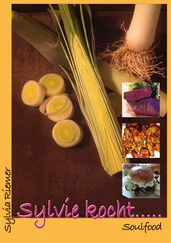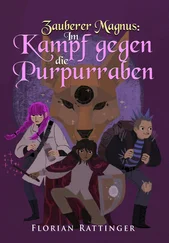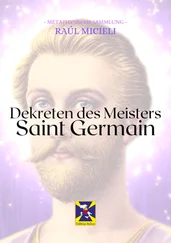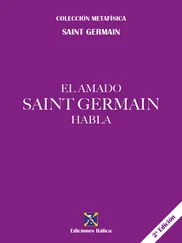Sylvie Germain - Magnus
Здесь есть возможность читать онлайн «Sylvie Germain - Magnus» весь текст электронной книги совершенно бесплатно (целиком полную версию без сокращений). В некоторых случаях можно слушать аудио, скачать через торрент в формате fb2 и присутствует краткое содержание. Год выпуска: 2008, Издательство: Dedalus Ltd, Жанр: Современная проза, на английском языке. Описание произведения, (предисловие) а так же отзывы посетителей доступны на портале библиотеки ЛибКат.
- Название:Magnus
- Автор:
- Издательство:Dedalus Ltd
- Жанр:
- Год:2008
- ISBN:нет данных
- Рейтинг книги:3 / 5. Голосов: 1
-
Избранное:Добавить в избранное
- Отзывы:
-
Ваша оценка:
- 60
- 1
- 2
- 3
- 4
- 5
Magnus: краткое содержание, описание и аннотация
Предлагаем к чтению аннотацию, описание, краткое содержание или предисловие (зависит от того, что написал сам автор книги «Magnus»). Если вы не нашли необходимую информацию о книге — напишите в комментариях, мы постараемся отыскать её.
Magnus — читать онлайн бесплатно полную книгу (весь текст) целиком
Ниже представлен текст книги, разбитый по страницам. Система сохранения места последней прочитанной страницы, позволяет с удобством читать онлайн бесплатно книгу «Magnus», без необходимости каждый раз заново искать на чём Вы остановились. Поставьте закладку, и сможете в любой момент перейти на страницу, на которой закончили чтение.
Интервал:
Закладка:
He pushes open the door. The direct sunlight blinds him. ‘Good morning, my son! Did you sleep well?’ The little old monk wearing his mobile beehive has returned, as buzzingly cheerful as the previous day. Over by the lime tree that shades the yard, he is busying himself round a table he has improvised with a wooden plank resting on some logs taken from the pile in the shed. He acts as if he is at home here, indeed like a host about to welcome a guest. For that is what he is preparing: lunch.
On the board are a jug of water, a bottle of wine, three glasses, fruit, saucisson, cheese, a pot of honey and some bread, and even a posy of golden clover and agrimony.
‘You must be hungry,’ he says. ‘If it’s all right with you, we’ll have lunch straightaway. It’s already midday. The meal may be frugal but it’s none the less festive. Because today is the fifteenth, the day of Mary’s Assumption. In honour of which I’ve brought a bottle of wine, a very good wine, a Pouilly Fumé. And you know what? It’s also my birthday. I was born on the night of the fifteenth of August, but so long ago I can’t remember the exact year any more. It was towards the end of the last century. It was a tradition, or rather a blessing, in my family: all the children were born on the fifteenth of August. And I had a lot of siblings — nine boys, would you believe? Who all came into the world under the protection of the Virgin. So this birthday isn’t just mine, it’s also that of my eight brothers. All of them have died now, gone to pay their respects to the Immaculate Mother of God. Soon it will be my turn. Ah, what a beautiful day!’
Dazed by the chatter of this tiresome votary of the Virgin, Magnus is not sure whether the beautiful day he has just referred to is this one, or that of his forthcoming death. But he does not care either way, and the presence of the talkative monk irritates him. Yet he dare not drive him away. He politely beats a retreat, pleading tiredness in order to seek refuge inside the house where, he hopes, the intruder will not, after all, have the gall to follow him. But the fellow is not to be put off, and resumes his chatter with exasperating cheek.
‘Sorry, my son, but I haven’t got time to wait any longer. So you think I came on a whim, do you? I’ve been watching you for a long time, since the day you moved into this isolated house, nearly three years ago. And not a day’s gone by that I haven’t seen you, passing here or there … But you’ve never noticed my presence, although I live mostly nearby. The number of times I’ve slept in the stable beside the barn where you spend hours shut up inside! There is still straw in the mangers, and I like to come and lie down in it, it’s warm and smells goods. The animals have left behind a little of their warmth, their gentleness, their wisdom … Anyway, you prefer the barn. Why not? But enough’s enough. Haven’t you had your fill of emptiness in that barn of yours?’
‘Mind your own business,’ replies Magnus, annoyed to discover that he has been spied on by this old busybody. ‘Leave me in peace!’
Brother Jean does not give up. He returns to the fray. ‘Peace! It’s not by isolating yourself that you’ll find peace. For that’s what you are: isolated, not a recluse. Lonely, not a loner. I know what I’m talking about, I’ve been living as a hermit for some thirty years, close to my monastery. I’d never have been able to keep going if I had a heart as bleak as yours. The heart of a sequestered man.’
‘Sequestered?’ echoes Magnus, who does not know this word.
‘Confined, detained, imprisoned, walled up …’ explains the monk, and immediately continues with what he was saying. ‘I keep bees. My hives are not far from here. I take the honey to the monastery, and receive food and clothing in exchange. I need very litte. Less and less. Soon I shan’t be needing anything at all. That time is near, which is why I’ve come to you.’ Then abruptly changing the subject, he asks, ‘So what about your name, did you remember it?’
‘Magnus.’
‘Ah? Are you sure?’ says Brother Jean with a dubious look, as if he already knew the answer and the one he had been given was incorrect.
This response once again disconcerts Magnus, who is well aware he has a borrowed name shared with a teddy bear, and that this very morning he obliterated another name, which might have been his.
‘Why do you doubt my name?’ he asks.
Evading the question, his interlocuter says, ‘Names! Bah! People sometimes change them in the course of their life, as if the one they were given at birth wasn’t the right one. I had to give up mine when I entered the monastery, and I wasn’t given any choice. My name used to be Blaise. It was taken away from me. You’ll be called Brother Jean, they said. So Jean it was. Like the Baptist who fed on locusts and honey, or the Evangelist. Now there’s someone who was enlightened by a visit from the Angel of mystery! The Angel of the Word … Yes, the Angel of the Word, who made him eat up the little book of fire. In my opinion, that book was a beehive comb dripping with honey. I’m just a very insignificant Jean, and the Angel of the Word split my lip by sealing my mouth with his secret … But for some time now I have had the feeling this secret is stirring … yes, it’s stirring in my mouth, on my split lip … it’s like a taste of wind…’
‘What are you talking about? What secret?’
‘As if I knew! Who is familiar with the gift of God?’
‘Certainly not me!’ exclaims Magnus. ‘And it’s no concern of mine. I’m not a believer.’
‘So much the better,’ retorts Brother Jean, who takes everything in his stride. ‘That makes you freer. Free to be surprised by what I, on my own, have not yet been able to experience. That’s why I need you.’
The gift of God! A charming fantasy. Magnus can make no sense of Brother Jean’s vatic utterances, but his irritation has subsided. He no longer has any desire to argue with this innocent whose persistence is matched by his eccentricity. All he wants is to rest and have something to eat, hunger suddenly overtaking his tiredness. They sit down side by side in the shade of the lime tree. A small cloud of bees swirls round them. They empty the bottle of Pouilly, sharing the contents of the third glass that Brother Jean had filled with the Angel of the Word in mind, or any other visitor who might turn up. More talkative and more crazy than ever, he draws a parallel between the ingenious system devised by Vauban for beseiging a fortified town, using zigzag trenches, and the delicate labyrinth of paths leading the soul towards God. Then he elaborates another parallel between the ripening of fruit by the effect of heat and the bringing to maturity of his death by the effect of time, a process he feels is about to reach completion.
Magnus listens with only half an ear. He is feeling tired again. His companion starts singing, his voice still tuneful. He intones the litany of the Virgin in Latin. Then he rises and calmly announces, ‘I shan’t be coming back again. Next time, you’ll come to me. I can rely on you, can’t I?’
Magnus reminds him that he does not know where he lives, if indeed he lives anywhere.
‘Not to worry, I’ll send my bees to fetch you. All you have to do is follow them.’
And as on the previous day, he trips off amid a buzzing of insects.
Magnus watches Brother Jean go, the figure of an elderly child in perpetual flight. A wood sprite who frolics with bees, who wields words illuminated like the pages of an old missal. Magnus feels as if he has been unwittingly introduced into a fairy tale. An antiquated tale inadvertently inserted into the rambling story of his life. It was charming, but he thinks he would have preferred to be invited into a completely different narrative: he has outgrown fairy tales. The secret of the Angel of the Word! He would be content to see the more modest secret of his early childhood finally explained, and even more so the secret of the vast nowhere into which the dead disappeared. The gift of God! But it is the gift of life that Magnus wants — and for the gift of life to be returned to those who have been robbed of it.
Читать дальшеИнтервал:
Закладка:
Похожие книги на «Magnus»
Представляем Вашему вниманию похожие книги на «Magnus» списком для выбора. Мы отобрали схожую по названию и смыслу литературу в надежде предоставить читателям больше вариантов отыскать новые, интересные, ещё непрочитанные произведения.
Обсуждение, отзывы о книге «Magnus» и просто собственные мнения читателей. Оставьте ваши комментарии, напишите, что Вы думаете о произведении, его смысле или главных героях. Укажите что конкретно понравилось, а что нет, и почему Вы так считаете.












